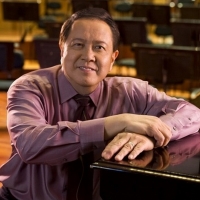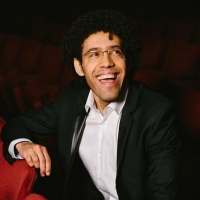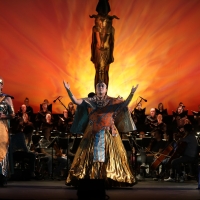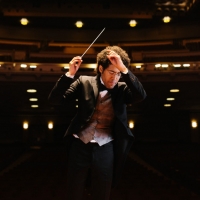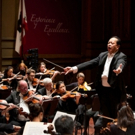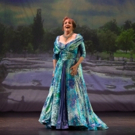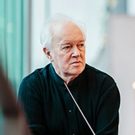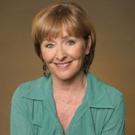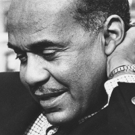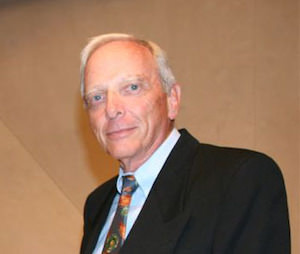
Ron Bierman has performed on saxophone and flute in several college and other orchestras. He graduated from the Massachusetts Institute of Technology where his studies included music theory as taught by Swiss pianist and composer Ernst Levy. His published work includes reviews of recordings, books, plays, films and live music performances for web sites and newspapers. He has an extensive library of books about music and over three thousand CDs. Now living in San Diego with his wife, he was the President of Advocates for Classical Music for more than 15 years, an organization which worked with local symphony orchestras to introduce more than 200,000 young students to the pleasures of classical music. He and his wife enjoy visiting classrooms with CDs and instruments in hand.
LEARN MORE ABOUT Ron Bierman
First Show:
Louis Armstrong's sextetFavorite Show:
The Music ManFavorite Stories:
- BWW Interview: Frederica Von Stade of at San Diego Opera - Mezzo Soprano Frederica von Stade was the first widely recognized opera singer I ever interviewed and a pleasure to interview, pretty much the opposite of the stereotypical image of a "Diva." I was surprised to learn that the women who sang for five Presidents loved jazz while growing up, saw all the great Broadway shows and stood outside Manhattan's Metropole Cafe listening to Dizzy Gillespie when she was too young to go in.
- BWW Feature: SAN DIEGO'S CLASSICAL MUSIC SCENE - When I first came to San Diego more than 25 years ago, the theater scene was thriving, but classical music performances were few and well below the quality I expected in a city of San Diego's size. Today the picture is dramatically different. There are far more performances and their musicianship has yet to be recognized outside of the area. This feature explains why.
- BWW Review: SAN DIEGO SYMPHONY PRESENTS JAZZ AT LINCOLN CENTER ORCHESTRA WITH CHICK COREA at San Diego Jacobs Music Center -
- BWW Review: DR. JOHN IN SAN DIEGO at Embarcadero Marina - Jazz and classical music were my favorites when I was growing up. I still love listening to both Thelonius Monk and Leonard Bernstein. Dr. John, one of the most successful of New Orleans' many jazz musicians, was visibly ailing as he came to the stage and died not long after performing. Once he sat at the piano, he seemed 30 years younger, voice still a strange raspy pleasure and piano playing as good as any in the New Orleans style.
- BWW Review: THE FOUR TOPS AND THE TEMPTATIONS at the San Diego Symphony's Bayside Summer Nights -
April 17, 2019
Menopause the Musical is set in New York's Bloomingdale's department store where four women with different backgrounds, but similar unwelcome symptoms of growing older, run into each other while shopping and begin to share their experiences. The musical's success depends on wry humor and nostalgia for pop songs from the 1950s through 80s. An overture precedes 23 tunes arranged as solos or for varied combinations of singers. Playwright Jeanie Linders left melodies intact, but rewrote the lyrics to fit the work's overriding theme: getting old is no fun, might as well laugh about what we can't avoid.
April 3, 2019
San Diego Opera is the 13th company since 2011 to cast mezzo-soprano Ginger Costa-Jackson in the title role of Bizet's Carmen. Her voice, sultry looks, and sensuous flamenco dancing are perfect for the role. She even manages castanets in perfect rhythm without missing a step. The considerable powers of persuasion she brings to Carmen make it easy to accept that the malleable young Corporal Don Jose would desert his childhood sweetheart, not to mention his loving mother and the army, to be with her and a band of smugglers in a cold and dangerous mountain lair. A less naive man might have realized he couldn't compete for ever with a bold, dashingly handsome matador.
March 24, 2019
Since 2011 Mezzo-soprano Ginger Costa-Jackson has sung the title role in 12 different productions of Bizet's Carmen. She will star in yet another this month for San Diego Opera. From here it's on to rehearsals for nine performances of Bizet's masterwork at Seattle Opera. Is the singer tiring of Carmen? Not even close. She loves the character's sense of freedom and empowerment, and works with each new director to make her performance even more convincing.
March 12, 2019
Mezzo soprano Frederica von Stade starred in the San Diego Opera's staging of Three Decembers. One of several works written with her in mind by her close friend Jake Heggie, it' s a chamber opera for three singers and 11 musicians. In a recent Interview Von Stade said, 'I've done three productions, the original in Houston, a new production in Chicago, and this one, which is my favorite.' The libretto by Gene Scheer is based on a play by Terrence McNally. Von Stade portrays Madeline Mitchell, a self-centered Broadway star who has devoted so much time to her career that her children have come to resent her. She owns the role she premiered in 2008 with acting that makes the character believable, and a voice that remains attractive and compelling, if no longer as versatile as it was earlier in her career.
March 8, 2019
Edo de Waart began his official tenure as The San Diego Symphony Orchestra's Principal Guest Conductor with a program of three 20th Century works of, to receptive listeners, quiet reassuring beauty. The concert opened with 'The Walk to the Paradise Garden,' a between-scenes interlude from British composer Frederick Delius's opera A Village Romeo and Juliet. The interlude's gentle soothing melodies and pace are the exact opposite of those of the boisterous overtures that more typically open a concert. Just about any of Delius's music will sooth the savage breast. Extreme examples could be used to sedate patients before surgery. With that, I fear my bias shows, though I admit de Waart elicited beautiful playing and affectionate warmth in Thomas Beecham's arrangement. Lush and molasses-like as it is, it's hard to believe the arrangement was written so that the piece could be performed by a smaller orchestra than the oversized one Delius originally wrote it for, but it's true.
March 5, 2019
The famous mezzo soprano Fredericka von Stade is in San Diego this week rehearsing Three Decembers, one of several works written with her in mind by her close friend Jake Heggie. The chamber opera for three singers and 11 musicians will be performed three times next weekend at the 500-seat Patrick Henry PHAME Theatre. Von Stade recognized Heggie's talent long before he wrote his first opera and has been an influential champion ever since. Their friendship and collaboration have benefitted both. In my interview with her in a San Diego Opera rehearsal room she said, 'He's given me a second career with parts in Dead Man Walking and Great Scott, and a lot of song cycles. He's my guy.'
February 21, 2019
The La Jolla Music Society continued its eclectic 50th anniversary season with 'Jazz in the Key of Ellison,' a multimedia concert at the Balboa Theatre featuring music made popular by author Ralph Ellison's favorite artists including Duke Ellington, Louis Armstrong, and Thelonious Monk. Ellison loved jazz. He often wrote about it, and it plays an important role in Invisible Man, his best known work. Jazz influenced his approach to life. He said, 'The real secret of the game is to make life swing.'
February 6, 2019
The San Diego Opera's opening-night production of Verdi's Rigoletto featured the powerful voice and convincing acting of baritone Stephen Powell in a title role he has sung often. In contrast, it was soprano Alisa Jordheim's debut as Rigoletto's naive ill-fated daughter Gilda. Her fresh innocent appeal and Powell's veteran portrayal of cynical darkness were perfect for their respective roles. Jordheim has an agile voice with a deliciously silky tone, and commendable projection. She delivered coloratura passages of perfect clarity, hit the role's highest note with startling volume and purity, and held it. This won't be her last production of Rigoletto, nor the last major role in her promising career. Tenor Scott Quinn was the more than reprehensible duke who takes advantage of Gilda. The pair's youthful voices and appearance make them unusually well suited for Verdi's marvelous music and Francesco Maria Piave's tragedy-soaked libretto.
January 28, 2019
Coloratura Alisa Jordheim will be debuting in the role of Gilda with baritone Stephen Powell in a San Diego Opera production of Verdi's Rigoletto. This is the fifth time he's sung the lead. The first time was in a Cincinnati Opera production in which Jordheim had only a few lines as a page. 'I feel like I've graduated. That was in 2011, and I was a graduate student at CCM (the University of Cincinnati College-Conservatory of Music). It was a wonderful experience for me just to soak up everything in the rehearsal process. One of my favorite singers, Sarah Coburn, was the Gilda. Just getting to see her portray that character and to work with Stephen was a master class.'
January 22, 2019
British conductor Michael Francis is known to San Diego concert goers as the music director of the city's Mainly Mozart Festival. Since taking the job four years ago he has embarked on an ambitious chronological survey of the music of the composer who inspired the festival's name. On this evening he traveled a few blocks north and half a musical century forward to appear as guest conductor of the San Diego Symphony Orchestra in a program of works by 'The Young Romantics.' The enthusiastic reaction he received after the performance may increase the chances he will be called on again in future Symphony seasons.
January 15, 2019
Rafael Payare's initial concert as Music Director Designate of the San Diego Symphony Orchestra featured four familiar and easily appreciated pieces, including Mozart's Overture to Don Giovanni and the topically related Don Juan by Richard Strauss. In a different program two nights later Payare repeated only Strauss's tone poem. Its optimism recalled the mood of the earlier concert while its darkness signaled the predominant mood of the revised program. San Diego's new conductor-to-be managed to excite sellout audiences both nights.
Videos


